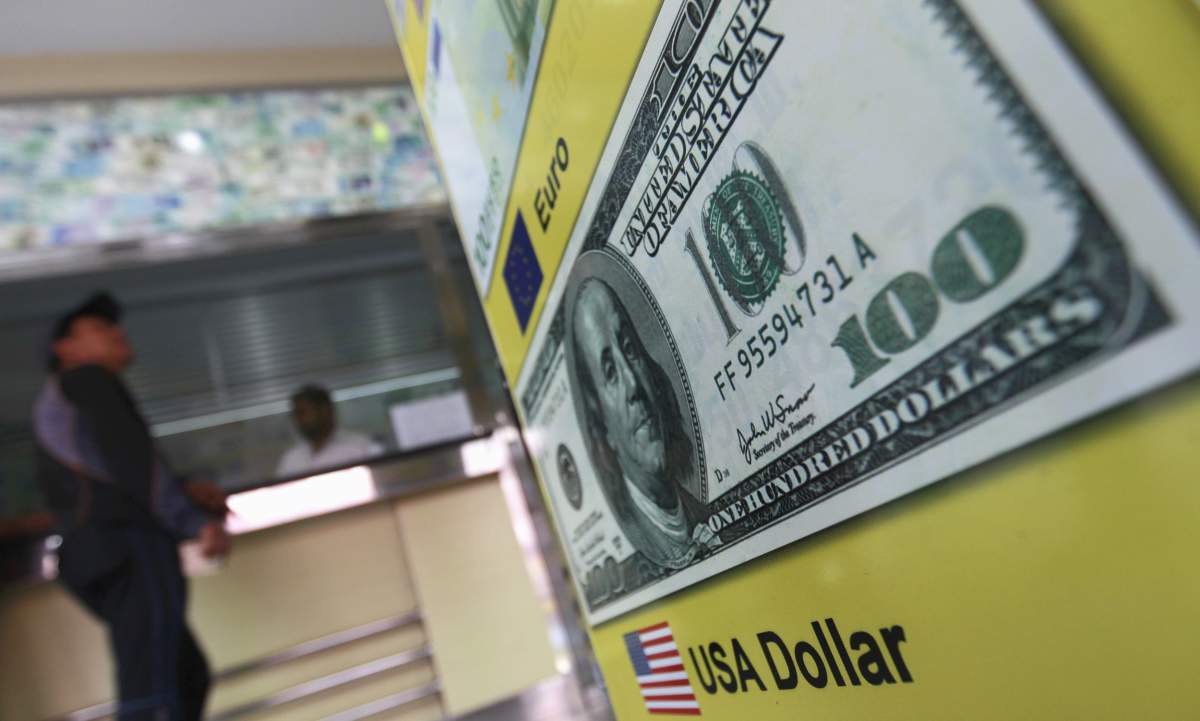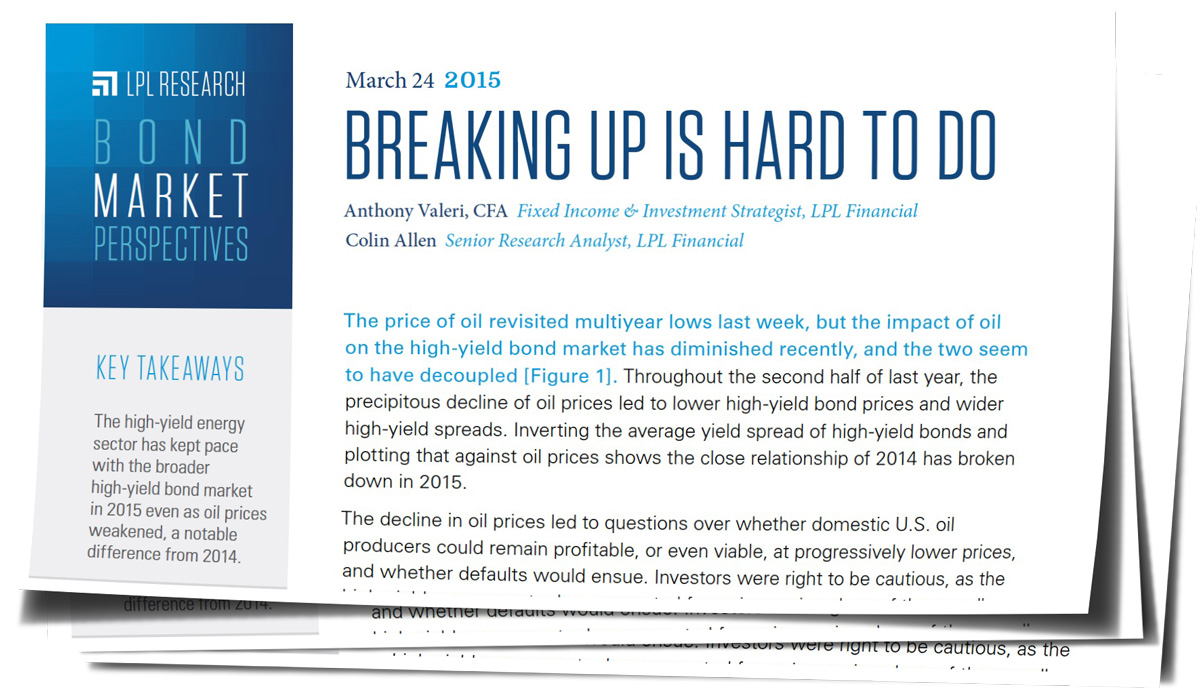by Ron Rimkus, CFA, Enterprising Investor
 Capital is fleeing the euro and yen and the US dollar is surging higher. The US Federal Reserve is ever so slowly positioning the United States for a rise in rates while the rest of the world is slashing theirs in response to weakening economies. It seems the capital that departed the United States after the financial crisis is coming home after a long journey.
Capital is fleeing the euro and yen and the US dollar is surging higher. The US Federal Reserve is ever so slowly positioning the United States for a rise in rates while the rest of the world is slashing theirs in response to weakening economies. It seems the capital that departed the United States after the financial crisis is coming home after a long journey.
Meanwhile, China’s economy continues to deteriorate as the housing slump there has gone from recession to depression, with dramatic declines in real estate transactions.
Of course, with the backdrop of aggressive monetary policy, the fledgling bitcoin cryptocurrency market is growing by leaps and bounds. Many high-profile Wall Street executives are jumping into bitcoin-related ventures, building a dizzying array of financial products and services as noted below.
Lastly, I’d like to draw your attention to some interesting comments made by Ray Dalio of Bridgewater Associates. Dalio suggests that the Fed raising rates in 2015 would be much like the Fed raising rates in 1937, warning that such a move today would lead to a recession like it did in 1937.
Here’s a wrap-up of key issues affecting global markets for fundamental investors.
Currencies
- The trade-weighted dollar index is surging. (Federal Reserve Bank of St. Louis)
- “Regan: As Currency War Erupts, Buy American” (USA Today)
- “US Dollar Approaches Four-Year High after Fed” (MarketWatch)
Commodities
- “Copper Stockpiles Rise Most in a Month as Chinese Demand Wanes” (Bloomberg)
- “Ukraine Hyperinflation; Currency Plunges 44% in One Week” (Mish’s Global Economic Trend Analysis)
China’s Direction
- China’s property market has the bottom fall out. (The Sydney Morning Herald)
- China’s economy is slowing more rapidly than people thought. (Fortune)
- “For Chinese Economy, Strengths Are Now Weaknesses” (The New York Times)
Credit Markets
- Credit spreads are drifting wider on investment grade bonds. (Federal Reserve Bank of St. Louis)
- High-yield bond credit spreads are spiking. (Federal Reserve Bank of St. Louis)
- Researchers find link between credit default swaps and mortgage default. (The Journal of Finance)
Derivatives
- “Retail Investors Flock to Derivatives for Income and Safety” (TheStreet)
- Banks change rules governing derivatives market — agree to give up right to close out deals when counterparty is failing. (Reuters)
- Bitcoin derivatives are now exploding worldwide. (Bitcoin Magazine)
Energy
- “Will the Oil Markets (And Shale Producers) Capitulate before Demand Recovers?” (Forbes)
- Rig count declines by 32%. (Econbrowser)
Euro Crisis
- Spanish Banco Popular now lending up to 113% loan-to-value. (The Telegraph)
- “‘The Fourth Reich': What Some Europeans See When They Look at Germany” (Der Spiegel)
- “Currency Wars Threaten Lehman-Style Crisis” (The Telegraph)
Hedge Fund Money
- “Ray Dalio: This Is Just Like 1937 and the Fed Could Drive Us into a New Recession” (Business Insider)
- “Greenlight Capital Discloses Short in Victrex” (ValueWalk)
- “Carl Icahn Adds to His Energy Bets after Suffering Losses” (Forbes)
Interest Rates and Central Banks
- “Fed’s Bullard Says Zero US Interest Rates No Longer Appropriate” (Reuters)
- “ECB ‘Chasing Own Tail’ as Bond Rates Turn Negative: SocGen” (Bloomberg)
- “Rate Cuts: 24 So Far and There’s More to Come” (CNBC)
Japanese Debt and Inflation
- “Japan’s Central Bank Warns of Temporary Return to Deflation” (The New York Times)
- “Japan Now Spends 43% of Tax Revenue to Fund Interest on Debt” (Zero Hedge)
- “Central Bank Moves Drive Market, Dollar at New Highs vs Yen, Euro” (Reuters)
The Stock Market
- “Market Valuations Based on CAPE — A Deeper Dive” (ValueWalk)
- We are in the “late innings” of a bull market in the S&P 500. (USA Today)
Follow the Bubble
- “NYSE Margin Debt Declined in January” (Advisor Perspectives)
- “The Canadian Housing Bubble Has Begun to Burst” (Zero Hedge)
Time Capsule
Ray Dalio thinks the Fed is possibly repeating 1937 all over again. Back in 1937, the market was eight years removed from the start of the Great Depression when the Fed began to raise rates. Dalio thinks the parallels are striking. In the linked article, he cites six reasons why market conditions are similar today to what they were back then.
If you liked this post, don’t forget to subscribe to the Enterprising Investor.
All posts are the opinion of the author. As such, they should not be construed as investment advice, nor do the opinions expressed necessarily reflect the views of CFA Institute or the author’s employer.
Photo credit: ©iStockPhoto/kmlmtz66
Follow @RonRimkusCFA on Twitter
Copyright © 2015 Ron Rimkus, CFA, Enterprising Investor














